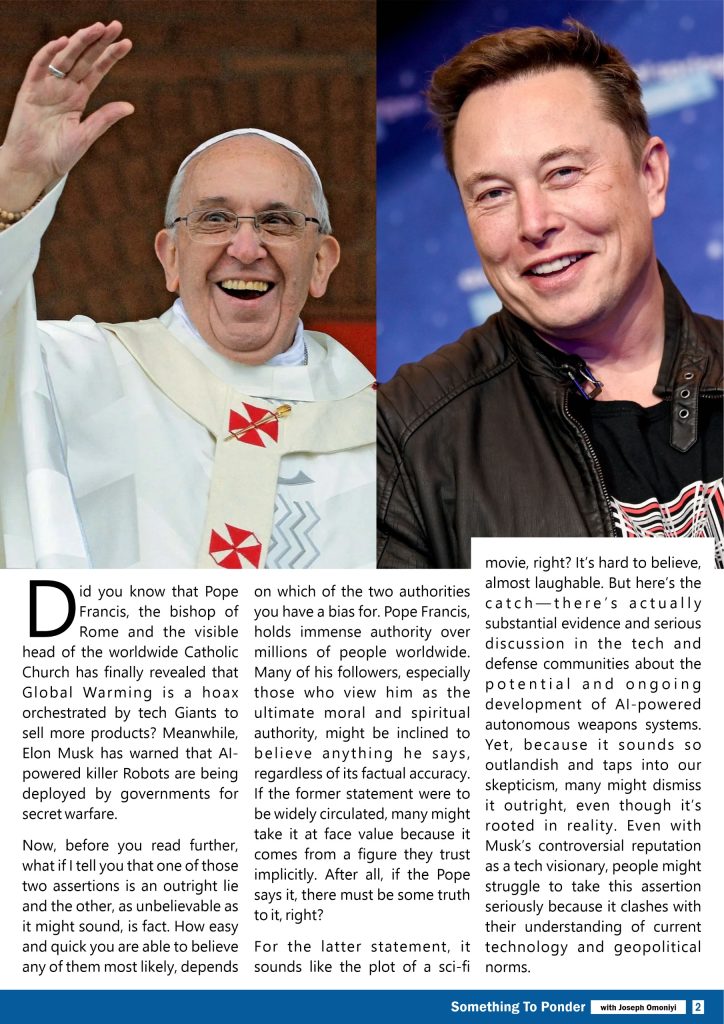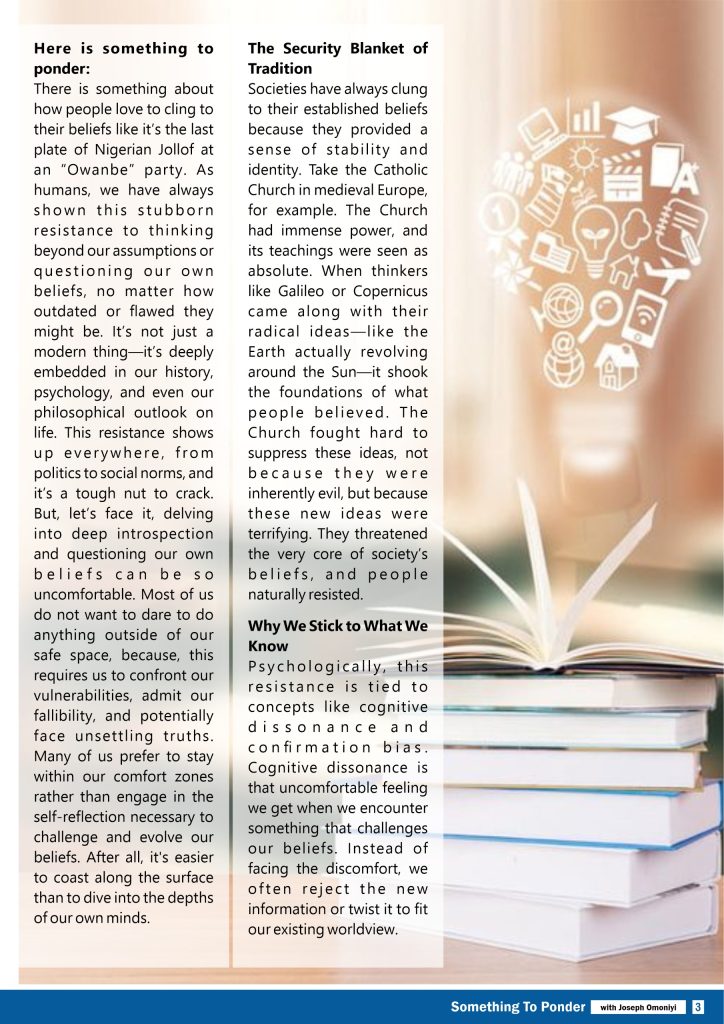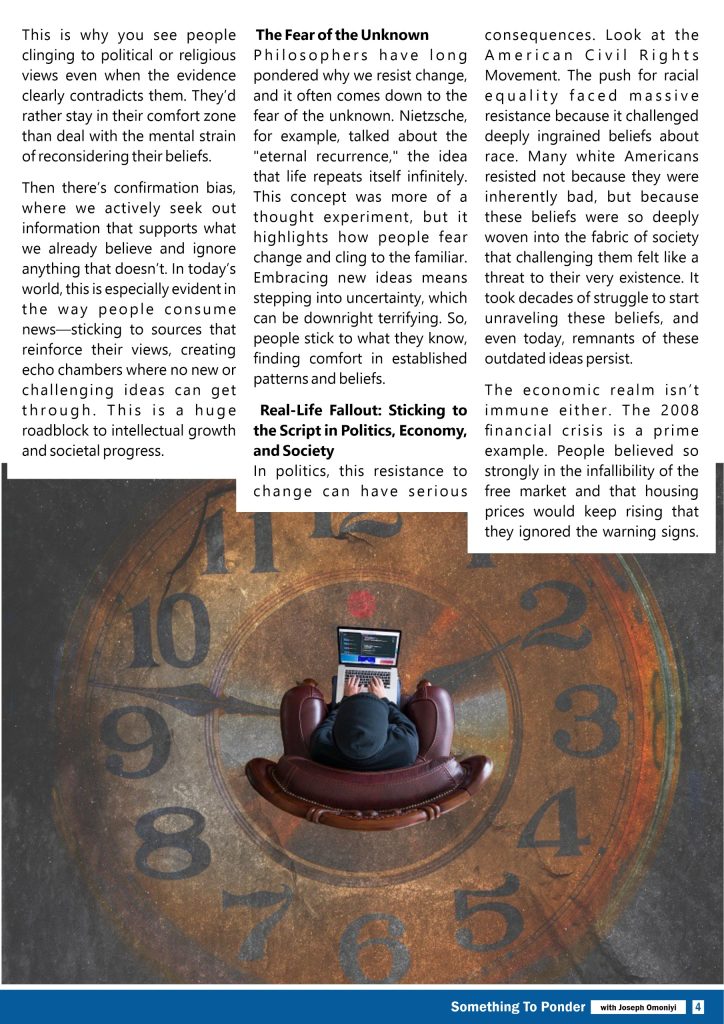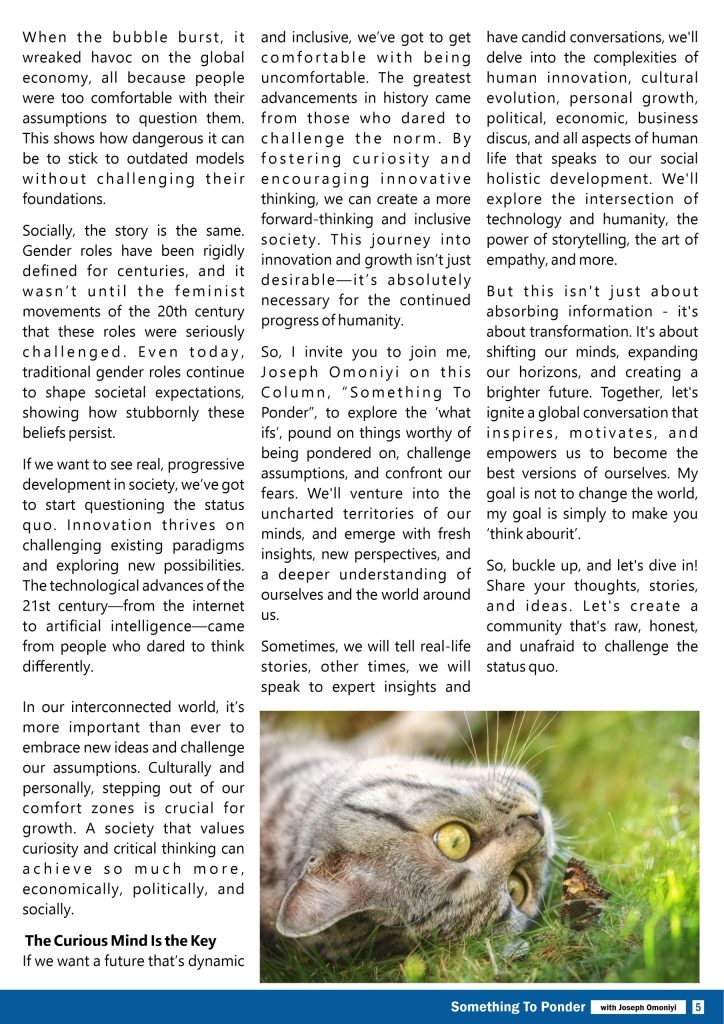Did you know that Pope Francis, the bishop of Rome and the visible head of the worldwide Catholic Church has finally revealed that Global Warming is a hoax orchestrated by tech Giants to sell more products? Meanwhile, Elon Musk has warned that AI-powered killer Robots are being deployed by governments for secret warfare.

Now, before you read further, what if I tell you that one of those two assertions is an outright lie and the other, as unbelievable as it might sound, is fact. How easy and quick you are able to believe any of them most likely, depends on which of the two authorities you have a bias for. Pope Francis, holds immense authority over millions of people worldwide. Many of his followers, especially those who view him as the ultimate moral and spiritual authority, might be inclined to believe anything he says, regardless of its factual accuracy. If the former statement were to be widely circulated, many might take it at face value because it comes from a figure they trust implicitly. After all, if the Pope says it, there must be some truth to it, right?
For the latter statement, it sounds like the plot of a sci-fi movie, right? It’s hard to believe, almost laughable. But here’s the catch—there’s actually substantial evidence and serious discussion in the tech and defense communities about the potential and ongoing development of AI-powered autonomous weapons systems. Yet, because it sounds so outlandish and taps into our skepticism, many might dismiss it outright, even though it’s rooted in reality. Even with Musk’s controversial reputation as a tech visionary, people might struggle to take this assertion seriously because it clashes with their understanding of current technology and geopolitical norms.
Here is something to ponder:
There is something about how people love to cling to their beliefs like it’s the last plate of Nigerian Jollof at an “Owanbe” party. As humans, we have always shown this stubborn resistance to thinking beyond our assumptions or questioning our own beliefs, no matter how outdated or flawed they might be. It’s not just a modern thing—it’s deeply embedded in our history, psychology, and even our philosophical outlook on life. This resistance shows up everywhere, from politics to social norms, and it’s a tough nut to crack. But, let’s face it, delving into deep introspection and questioning our own beliefs can be so uncomfortable. Most of us do not want to dare to do anything outside of our safe space, because, this requires us to confront our vulnerabilities, admit our fallibility, and potentially face unsettling truths. Many of us prefer to stay within our comfort zones rather than engage in the self-reflection necessary to challenge and evolve our beliefs. After all, it’s easier to coast along the surface than to dive into the depths of our own minds.
The Security Blanket of Tradition

Societies have always clung to their established beliefs because they provided a sense of stability and identity. Take the Catholic Church in medieval Europe, for example. The Church had immense power, and its teachings were seen as absolute. When thinkers like Galileo or Copernicus came along with their radical ideas—like the Earth actually revolving around the Sun—it shook the foundations of what people believed. The Church fought hard to suppress these ideas, not because they were inherently evil, but because these new ideas were terrifying. They threatened the very core of society’s beliefs, and people naturally resisted.
Why We Stick to What We Know
Psychologically, this resistance is tied to concepts like cognitive dissonance and confirmation bias. Cognitive dissonance is that uncomfortable feeling we get when we encounter something that challenges our beliefs. Instead of facing the discomfort, we often reject the new information or twist it to fit our existing worldview. This is why you see people clinging to political or religious views even when the evidence clearly contradicts them. They’d rather stay in their comfort zone than deal with the mental strain of reconsidering their beliefs.

Then there’s confirmation bias, where we actively seek out information that supports what we already believe and ignore anything that doesn’t. In today’s world, this is especially evident in the way people consume news—sticking to sources that reinforce their views, creating echo chambers where no new or challenging ideas can get through. This is a huge roadblock to intellectual growth and societal progress.
The Fear of the Unknown
Philosophers have long pondered why we resist change, and it often comes down to the fear of the unknown. Nietzsche, for example, talked about the “eternal recurrence,” the idea that life repeats itself infinitely. This concept was more of a thought experiment, but it highlights how people fear change and cling to the familiar. Embracing new ideas means stepping into uncertainty, which can be downright terrifying. So, people stick to what they know, finding comfort in established patterns and beliefs.
Real-Life Fallout: Sticking to the Script in Politics, Economy, and Society
In politics, this resistance to change can have serious consequences. Look at the American Civil Rights Movement. The push for racial equality faced massive resistance because it challenged deeply ingrained beliefs about race. Many white Americans resisted not because they were inherently bad, but because these beliefs were so deeply woven into the fabric of society that challenging them felt like a threat to their very existence. It took decades of struggle to start unraveling these beliefs, and even today, remnants of these outdated ideas persist.
The economic realm isn’t immune either. The 2008 financial crisis is a prime example. People believed so strongly in the infallibility of the free market and that housing prices would keep rising that they ignored the warning signs. When the bubble burst, it wreaked havoc on the global economy, all because people were too comfortable with their assumptions to question them. This shows how dangerous it can be to stick to outdated models without challenging their foundations.
Socially, the story is the same. Gender roles have been rigidly defined for centuries, and it wasn’t until the feminist movements of the 20th century that these roles were seriously challenged. Even today, traditional gender roles continue to shape societal expectations, showing how stubbornly these beliefs persist.
If we want to see real, progressive development in society, we’ve got to start questioning the status quo. Innovation thrives on challenging existing paradigms and exploring new possibilities. The technological advances of the 21st century—from the internet to artificial intelligence—came from people who dared to think differently.
In our interconnected world, it’s more important than ever to embrace new ideas and challenge our assumptions. Culturally and personally, stepping out of our comfort zones is crucial for growth. A society that values curiosity and critical thinking can achieve so much more, economically, politically, and socially.
The Curious Mind Is the Key
If we want a future that’s dynamic and inclusive, we’ve got to get comfortable with being uncomfortable. The greatest advancements in history came from those who dared to challenge the norm. By fostering curiosity and encouraging innovative thinking, we can create a more forward-thinking and inclusive society. This journey into innovation and growth isn’t just desirable—it’s absolutely necessary for the continued progress of humanity.
So, I invite you to join me, Joseph Omoniyi on this Column, “Something To Ponder”, to explore the ‘what ifs’, pound on things worthy of being pondered on, challenge assumptions, and confront our fears. We’ll venture into the uncharted territories of our minds, and emerge with fresh insights, new perspectives, and a deeper understanding of ourselves and the world around us.
Sometimes, we will tell real-life stories, other times, we will speak to expert insights and have candid conversations, we’ll delve into the complexities of human innovation, cultural evolution, personal growth, political, economic, business discus, and all aspects of human life that speaks to our social holistic development. We’ll explore the intersection of technology and humanity, the power of storytelling, the art of empathy, and more.

But this isn’t just about absorbing information – it’s about transformation. It’s about shifting our minds, expanding our horizons, and creating a brighter future. Together, let’s ignite a global conversation that inspires, motivates, and empowers us to become the best versions of ourselves. My goal is not to change the world, my goal is simply to make you ‘think abourit’.
So, buckle up, and let’s dive in! Share your thoughts, stories, and ideas. Let’s create a community that’s raw, honest, and unafraid to challenge the status quo.
.





